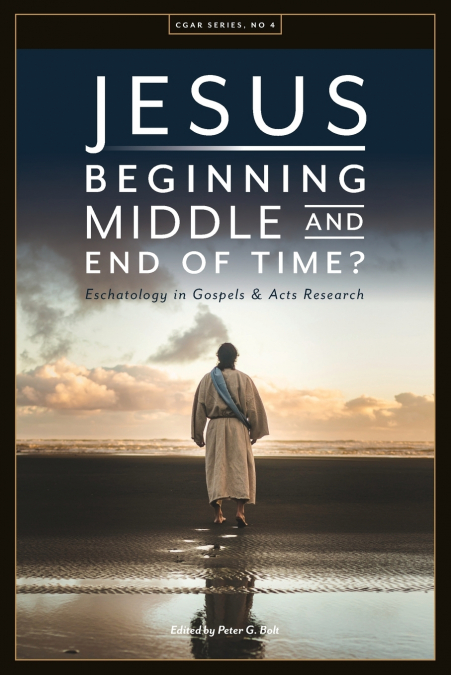
Peter G Bolt
Peter G. Bolt, Introduction: It’s About Time. 1. Craig A. Evans. Kingdoms in Conflict I:The Four-Kingdoms Schema In The East And The West. 2. Craig A. Evans. Kingdoms in Conflict II: The Jesus Movement And The Roman Empire. 3. David J. Neville. Ethics and Eschatology in the SynopticTradition: A Theological-Moral Response to N. T. Wright’s Gifford Lectures. 4. Mary J. Marshall. The ’New Covenant’ Debate Revisited. 5. Jonathan Thambyrajah. Wicked Wizards of the East: The μάγοι in Historical Context and Ambiguity as Narrative Technique in Matthew 2. 6. Daniel W. McManigal. The Function of John’s Baptism in Matthew’s Gospel: A Dramatised Declaration of the Coming Judgement. 7. Timothy P. Bradford. ’Like the angels’?: Embodiment and Eschatology in Matthew’s Gospel. 8. Michael Modini. The Markan Alphabet Theory: Eschatological Origins of Mark’s Gospel. 9. Peter G. Bolt. The Eschatological Coherence of Mark 11:20-25. 10. Anthony Petterson. The Apocalyptic Attack of Jerusalem by Non-Israelite Nations In Zechariah 9-14 and the Death of Jesus In Mark 13. 11. Michele A. Connolly. Mark 13: Literary Impetus to the Passion Narrative and Christian Faith for All Generations. 12. Denise Powell. The View from the Ditch: Reading the Good Samaritan Parable as Wisdom not Virtue. 13. James R. Harrison. From Petitionary Rhetoric to Eschatological Vindication: Comparing the Widow Aurelia Artemis from Theadelphia with Jesus’ Persistent Widow (Luke 18:1-8). 14. Debra Snoddy. Realising the Now and the Not Yet of the Realised Eschatology in the Gospel of John: John’s Focus and Purpose and Why it Still Matters to All Christians. 15. John D. Griffiths. In The Last Days: Alteration, Eschatology, and the Spirit. 16. Francis Otobo. ’In the last days...’ (Acts 2:17): Eschatology, Cultural Diversity, and the Challenge of Inclusivity in Acts. 17. C. Bruce Riding. Contrary to Popular Tradition, Saul/Paul was not Converted to Christianity on the Road to Damascus.